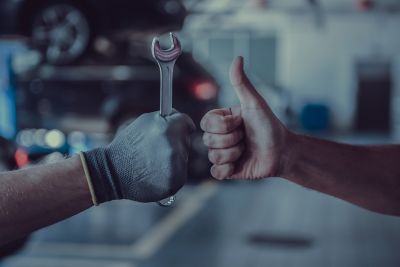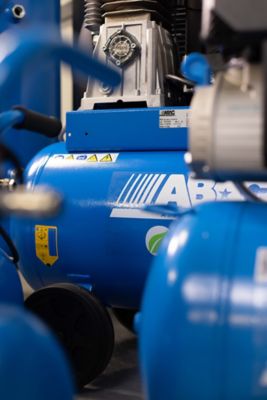Regularly check the oil levels in the compressor's pump and top up if necessary. Replace the oil every few hundred hours of operation or as recommended by the manufacturer.
Air compressors are essential tools in various industries, from manufacturing to construction. However, like any other machinery, they require regular maintenance to ensure optimal performance and longevity. In this comprehensive guide, we will delve into the importance of air compressor maintenance, provide a detailed maintenance checklist, and answer common questions related to the upkeep of air compressors.
Why Proper Air Compressor Maintenance is Important
Proper maintenance of air compressors is crucial for several reasons:
- Longevity: Regular maintenance helps extend the lifespan of your air compressor, ensuring you get the most out of your investment.
- Efficiency: A well-maintained air compressor operates more efficiently, reducing energy consumption and operational costs.
- Safety: Regular checks and maintenance help identify potential issues that could lead to accidents or equipment failure, ensuring a safer working environment.
- Cost Savings: Preventive maintenance can help avoid costly repairs and downtime, saving you money in the long run.
- Environmental Benefits: Properly maintained air compressors are more energy-efficient and produce fewer emissions, contributing to a greener environment.
Air Compressor Maintenance Checklist
To keep your air compressor in top condition, follow this comprehensive maintenance checklist:
Check for wear and tear, looseness, or cracks. Tighten or replace them as needed to ensure smooth operation.
Detect leaks or use a soapy solution to check connections and seals. Replace gasket to prevent the compressor from overworking and losing efficiency.
Air leaks in air compressor? Check out our step-by-step guide.
Regularly clean or replace air filters to prevent dust and debris from entering the compressor, which can reduce airflow and increase operating temperature and cause higher electricity bill.
How to Clean Compressor Air Filter? Check out our guide now.
Moisture can accumulate in the air receiver tank, leading to rust and corrosion. Regularly drain the condensate to prevent damage.
Understand how moisture can impact the efficiency and lifespan of your equipment.
Check hoses for wear and tear, and replace them if necessary to prevent leaks and ensure efficient operation.
Regularly check and tighten all fasteners to prevent parts from becoming loose during operation.
Unusual sounds or vibrations can indicate potential issues. Investigate and address any abnormalities promptly.
Your compressor is humming? Discover the common causes and solutions for a humming noise in your air compressor.
Ensure the safety valve is functioning correctly to prevent over-pressurisation.
Check the time it takes for the compressor to reach its maximum pressure. A longer-than-usual pump-up time can indicate potential issues.
Ensure all system controls are functioning correctly to maintain optimal performance.
Professional Maintenance Services
While regular maintenance can be performed by the equipment owner, professional maintenance services offer several benefits:
- Expertise: Professional technicians have the knowledge and experience to identify and address potential issues that may not be apparent to the equipment owner.
- Genuine Replacement Parts: Professional services use genuine replacement parts, ensuring the reliability, compatibility with the full system, and longevity of the equipment.
- Maintenance Plans: Comprehensive maintenance plans, including regular professional inspections, ensure all aspects of your air compressor are monitored and maintained—helping to prevent unexpected breakdowns and catch potential issues early.
- Extended Warranties: Professional maintenance services often come with extended warranties, providing additional protection for your investment.
- Emergency Support: In case of unexpected breakdowns, professional maintenance services offer emergency support to get your equipment back up and running quickly.
Common Questions, Clear Answers
Air compressor maintenance is essential for ensuring the longevity, reliability, and efficiency of the equipment. It helps prevent breakdowns, reduce energy consumption, and improve workplace safety.
It is recommended to regularly check the oil levels in your air compressor's pump and top it up if necessary. The oil should be replaced every few hundred hours of operation or according to the manufacturer's recommendations.
When inspecting belts and pulleys, check for wear and tear, looseness, or cracks. It is important to tighten or replace them as needed to ensure smooth operation of the compressor.
To prevent air leaks, listen for leaks or use a soapy solution to check connections and seals. Repair or replace any leaks to prevent the compressor from overworking and losing efficiency.
Cleaning the air filters regularly helps prevent dust and debris from entering the compressor, which can reduce airflow and increase the operating temperature and cause higher electricity bill. Maintaining clean filters can improve the overall performance of the air compressor.










